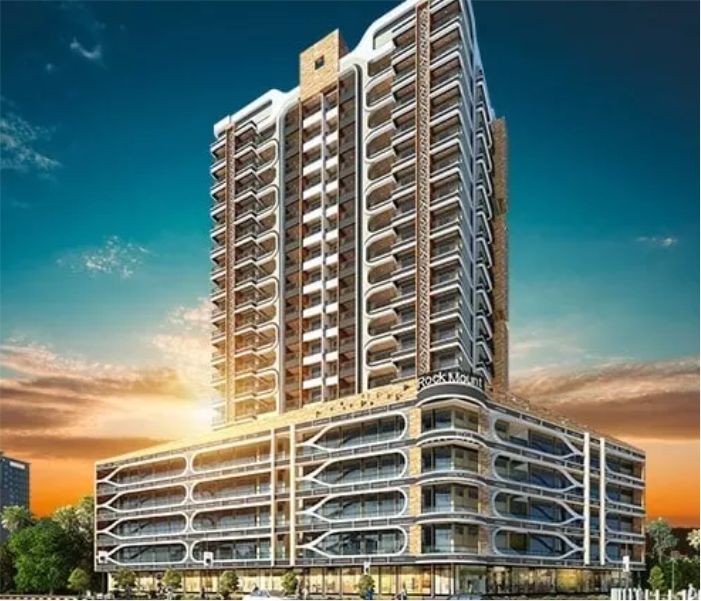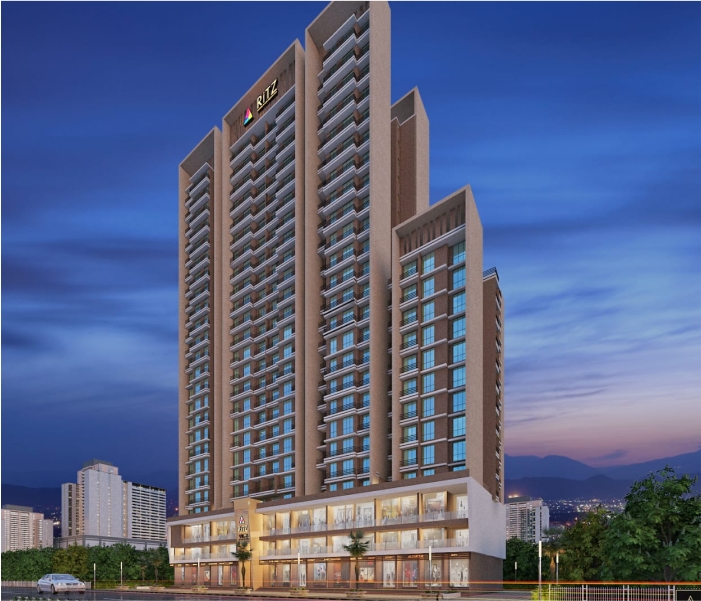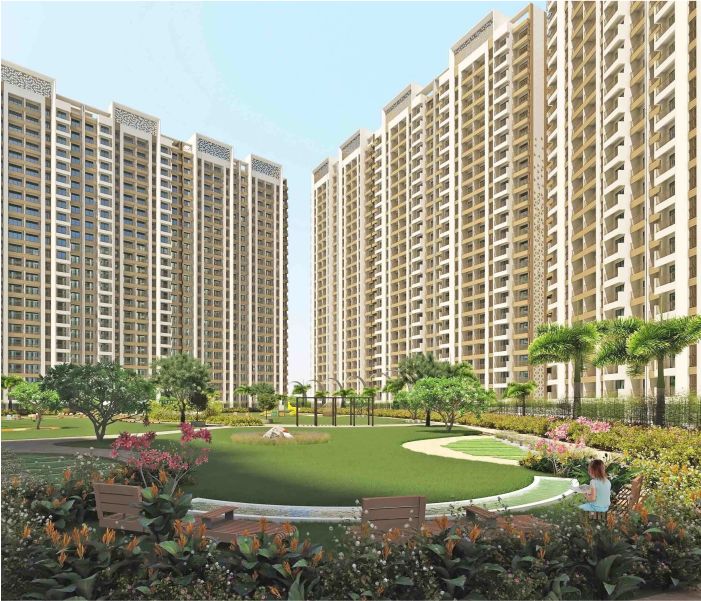
A house is one of many things we should deliberate on while buying a property. While buying a home, one must deliberate some extra construction expenditures. Most of the time, buyers disrespect construction-related fees. We need to pay an architect or interior designer, and purchase raw materials like bricks, doors, windows, concrete, cement, quality, labour, etc., to construct a house. Therefore, before buying a home, we must consider several criteria and base our estimates on those factors.
Disdain having a wide range of amenities and features, dwelling units in gated communities are characteristically not custom-made. As a result, independent home buildings are more popular since they give residents the freedom to design their homes any way, they see fit. However, building a house has unique difficulties. Most homeowners are either ignorant of the development expense or careless about it. As a result, numerous problems could materialise, ranging from cost growth to poor building quality.
The average cost of constructing a room in India
The cost of constructing a room can vary greatly from house to house. On average, you can antedate the following prices for a room with dimensions 10×10.
Tasks & Average cost
Soil quarry for foundation (4 ft deep and 4X4 ft in size) - Rs 2,900
Bricklabor (bricks, sand and cement bags) - Rs 46,000
Tangible for wall beams, plinth beam and RCC slab - Rs 20,000
Strengthening work (Column beam, RCC slab, steel and labour) - Rs 24,000
Extra expenses, such as tile flooring, plastering, putty painting, plumbing, PCC flooring, water supply, electrical fittings and sanitation, characteristically make up approximately 60% of the total building cost for a single room. Therefore, based on the preceding calculation, the total construction cost would quantity to Rs 1,08,500, of which 60% would be Rs 65,100. This results in a comprehensive construction cost of Rs 1,73,600, including all vital expenditures.
The cost of constructing a bathroom in India
The average overall expenditure of building a bathroom depends on several factors, such as the obtainable space, the choice of sanitaryware, the quality of materials and the types of furnishings. Nevertheless, here is a rough approximation of the cost of bathroom construction.
Task & Cost
Plumbing (materials and labour) - Rs 25,000
Slating (materials and labour) - Rs 160 per sqft
Sanitaryware (wall-mounted toilets and washbasin) - Rs 15,000
Fixtures (showers, faucets and drains) - Rs 18,000
Paint (emulsion paint) - Rs 35 per sqft
Electrical work (electrical walls and ceiling points) - Rs 150-200 per running foot
Various expenses - Rs 20,000
The average cost of constructing a basement in India
A basement, which is the area built beneath a property, can be employed for parking, profitable drives or as a storage space. If you’re considering the building of a basement and require a cost estimate, here are the typical charges associated with building a basement for a 1,000 sqft property.
Material & Average cost
Cement - Rs 1,30,000
Steel - Rs 1,40,000
Bricks - Rs 90,000
Sand - Rs 50,000
Stone - Rs 50,000
Excavation - Rs 40,000
Water - Rs 10,000
Labour - Rs 80,000
Architect/engineer - Rs 30,000
Plumbing - Rs 60,000
Windows and doors - Rs 60,000
Framework and shuttering - Rs 30,000
Flooring - Rs 50,000
Electrical work - Rs 50,000
Main gate and boundary wall - Rs 20,000
Painting - Rs 50,000
Other miscellaneous expenses of - Rs 60,000
Total construction cost - Rs 10,00,000
Things to consider before construction
Here are a limited things you should think through before beginning the construction.
Land cost
The value of land is not constant; it varies from time to time depending on the area in which it is located and its surroundings. The land cost will be lower if the site is new or outside of a city. The land cost will be suggestively more remarkable if you are looking for land inside the city borders or in an area with a established neighbourhood.
Construction cost
The price of a building depends on several variables, including the type of raw materials used, such as wood, iron bars, cement, sand, labour, delivery timing, legal taxes, etc. Consequently, it is pointless to hire a accomplished architect who can assist you in properly designing your home and approximating construction costs and a completion date.
Know your plot
Once the construction budget for your new house has been established, the following step is to decide which neighbourhood and location best suit your requirements. Check the development of the community's infrastructure, ensuring that things like waterlogging, sewage, power, water, and rainwater collection are all present.
Verify the level of the property concerning the road, the quality of the plot's soil, the amenities nearby, the neighbourhood you'll be living in, and the accessibility of the road through your home. If the land is lower than the road, more filler material will be needed to level the surface, which will increase the cost of building. Therefore, choose the level property closest to the road at all times. It makes sense to invest in a cheaper site that might eventually experience nearby growth.
Acquire complete knowledge
Get a complete understanding of the construction process before continuing. Study up on modern construction methods. One very efficient method that saves money and time without compromising quality is prefabrication.
Working with a reliable, experienced contractor who is familiar with every aspect of building is something we strongly encourage. Insufficient knowledge and experience could lead to unexpected costs or delays because of overuse of raw materials or restructuring. Based on your budget and lot size, a skilled contractor or architect can create an exact blueprint for the layout and construction of your home. Architects can even be quite helpful in finding superior raw materials.
Regulatory laws and norms
Building guidelines can vary depending on the location, affecting project deadlines and construction prices. If your land is in an environmentally sensitive area, you’ll need to seek construction permission from the municipal body or gram panchayat. This might result in stays and increased expenses. Additionally, certain cities have exact development rules, such as the obligation of stilt parking in Delhi for a two-floor house. Waning to meet these rules could lead to plan rejections by the civic body.
Finishing cost
The final work of a house includes doors, windows, wooden work, electrical fittings, sanitary fittings, plaster of Paris (POP) work and grillwork. The price of concluding can range from Rs 500 per sqft to Rs 3,000 per sqft, depending on the amenities chosen. It also includes the cost of labour, for example, electricians, plumbers, tile masons, carpenters, painters and polishers. The overall construction cost of a house contains of both the cost of civil work and the finishing costs. For a 1,000 sqft home, the regular construction cost can range from about Rs 1,300 per sqft to Rs 5,000 per sqft.
How to calculate construction cost per square foot?
The place of the construction site, the type of foundation, the state of the soil, legal necessities, the cost of the materials, the tenderness factor, the location of the construction, the interior décor and design, and a few other fundamentals all affect the overall cost of building a house.
Building prices for civil work per square foot
In India, the regular cost of constructing a home for civil work is from Rs 800 to Rs 1,000 per square foot. The price of civil work comprises the price of the building materials or construction supplies desirable for your foundation, plinth, wall, roof, boundary wall, parapet wall, plastering, flooring, and brickwork, for example, cement, bricks, sand, gravel, and steel. The price of civil work contains labour costs, contractor fees, and shuttering fees.
Rate/cost of finishing a home or flat per square foot
A house can be built for between Rs. 400 and Rs. 700 per square foot. The cost of finishing work includes expenses for wall putty, flooring, tiling, electrical installation, sanitary plumbing, water storage tanks, security, fireproofing, painting, and window and door repairs.
Examples of finishing work include windows, doors, pop work, grillwork, wooden work, and sanitary fittings. The finishing cost usually varies from Rs. 500 per square foot to Rs. 3,000 per square foot, depending on the amenities offered. Moreover, finishing costs include labour charges for carpenters, electricians, plumbers, tile masons, painters, and polishers. The cost of the civil work and the finishing expenses make up the majority of the costs associated with building a house.
What affects construction cost per square foot?
When it comes to making a property in India, several factors can influence the cost. Here are some of the vital factors to deliberate:
Design and planning
The design and development of your house can significantly impact the cost of construction. A well-envisioned house with proper planning can save money in the long run. It’s crucial to work with an experienced designer to create a design that is both aesthetically pleasing and budget-friendly.
Here’s how design and scheduling can affect construction cost per square foot.
Architectural characteristics: Distinctive architectural designs, advanced features and intricate detailing often demand specialised materials and labour, foremost to increased costs.
Structural complications: Complex physical elements, like unconventional shapes or cantilevered sections, may need extra engineering expertise and materials, resulting in higher expenses.
Size of the property
The size of the property is a significant factor to note when calculating construction costs. A larger floor area may suggest more cost than a smaller house. If you are arrangement to add a first floor or additional floors to the property, the construction cost would increase by around 40 to 60 per cent.
Quality of materials
The quality of materials used in a building can also affect the cost. Using high-quality materials may cost more upfront, but they can save money in the long run by dipping maintenance costs and cumulative the lifespan of the property. It’s vital to assault a balance between cost and quality to guarantee that you get the best worth for your money.
In addition to quality, the choice of materials also heavily influences the total construction cost. Here’s how:
Concrete vs. brick: The choice between conventional brick building and concrete structures can have a big financial impact. Although concrete is frequently preferred for its longevity and ease of building, there are circumstances in which it may be more costly.
Steel vs. wood: Choosing between steel and wood for structural components might have an impact on costs. Large commercial or industrial structures are typically made of steel, while residential ones are typically made of wood.
Qualities and finishes: The cost of finishing, such as flooring, roofing, and interior materials, can vary greatly in terms of quality and variety. Imported materials and high-quality finishes are typically more costly.
Whereabouts
Another important issue that might affect construction costs is location. Building a house in a big city can be more expensive than building.
Here’s how location affects the construction cost:
City-wise variations: Costs can also vary suggestively among different cities in India. For instance, buildings in major metropolitan areas like Delhi or Mumbai is usually more expensive as compared to smaller cities or towns.
Labour
Here’s how labour can distress the overall construction cost:
Difference in wages: Labour costs can vary contingent on local wage rates and the availability of skilled workers. In regions with a high demand for building, skilled labour may command higher wages.
Productivity: Well-organized project management and skilled labour can affect construction timelines, potentially plummeting overall costs. Conversely, delays caused by labour disputes or shortages can lead to increased expenses.
Government regulations
The construction cost per square foot is significantly influenced by local government regulations.
constructing codes, It is legally required to abide by local building laws and regulations; non-compliance can result in significant penalties or expensive adjustments.
Permits and approvals: Getting the required permits and approvals from local authorities can be costly administratively and may cause delays in the project, which can affect the project's budget and schedule.
Environmental compliance: Certain techniques or materials may be required by environmental rules, especially for projects in environmentally sensitive areas or bodies of water. This could have an impact on construction costs.
Also Know About "IPS Flooring - A Cost Effective and Versatile Flooring Solution"



Recent comments(3)
Kiran
Good
Jai
Stupid calculation. Update with latest accurate prices
Manas Kumar Behera
Civil knowledge of calculation